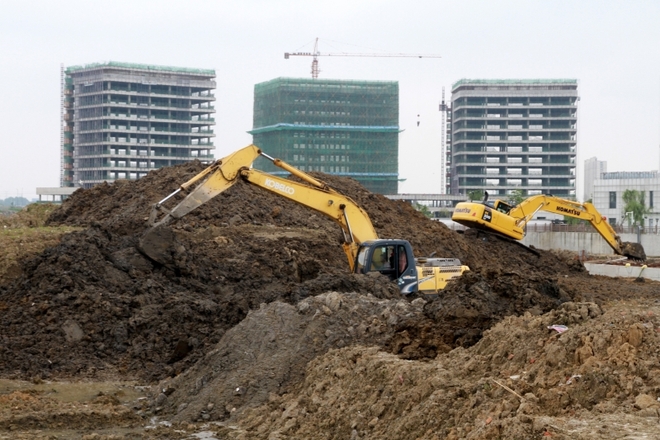In-depth: Local Finances at a Turning Point – How Can Fiscal and Tax Reforms Balance Growth and Equity? (AI Translation)
Listen to the full version


文|财新周刊 程思炜 于海荣
By Caixin Weekly's Cheng Siwei and Yu Hairong
在现代国家治理体系中,财税制度是基础性制度,事关资源配置效率、市场统一、社会公平等经济社会发展的诸多方面。财税体制改革涉及面广、关联度高,可谓“牵一发而动全身”。在推进中国式现代化、全面深化改革的进程中,新一轮财税体制改革如何才能成为推动经济高质量发展的有力支撑?
In the modern national governance system, the fiscal and taxation system is a fundamental institution that impacts various aspects of economic and social development, such as resource allocation efficiency, market unification, and social equity. The reform of the fiscal and taxation system is extensive and highly interconnected, often described as "pulling one hair and moving the whole body." As China advances toward modernization and deepens comprehensive reforms, how can a new round of fiscal and taxation reforms effectively support high-quality economic development?
2023年底,中央经济工作会议在部署深化重点领域改革的清单中,首次提出“谋划新一轮财税体制改革”,引发学界、业界的探讨。这不仅因为财税体制改革因为当前面临的财政困难、地方债等现实难题凸显了紧迫性,还在于作为经济体制改革的重要内容,财税改革一定程度上往往是急先锋,一如1994年的分税制改革、2013年十八届三中全会部署的财税体制改革。
At the end of 2023, the Central Economic Work Conference, for the first time, proposed "planning a new round of fiscal and tax system reform" in its list of key areas for deepening reforms, sparking discussions among academics and industry professionals. This is not only because the fiscal and tax system reform addresses the pressing issues of current fiscal difficulties and local debt troubles, but also because fiscal reform, as a significant aspect of economic system reform, often acts as a forerunner. This is evident from the 1994 tax-sharing reform and the fiscal and tax system reform outlined at the Third Plenary Session of the 18th Central Committee in 2013.
上世纪90年代,在社会主义市场经济体制初建立的过程中,以分税制为主的财税改革发挥了改革先导作用,增强了财政汲取能力和中央宏观调控能力,并且通过“分税”的安排,调动起地方政府积极性。地方为获取增值税、企业所得税等税收留成,大力招商引资、发展制造业的增长模式随之形成。
In the 1990s, during the early establishment of the socialist market economic system, fiscal and tax reforms centered around the tax-sharing system played a pioneering role. These reforms enhanced the government's revenue capacity and the central authority's macroeconomic control. Through the "tax-sharing" arrangement, local governments were motivated. In their bid to secure value-added tax (VAT) and corporate income tax retention, they aggressively pursued foreign investment and developed growth models focused on manufacturing.

- DIGEST HUB
- China's new round of fiscal and tax reforms aims to support high-quality economic development, address fiscal sustainability, and enhance governance coordination.
- Key reform areas include improving budget systems, optimizing tax structures, enhancing local tax systems, increasing direct taxes, and refining transfer payments.
- Challenges include reducing reliance on volatile land revenues, fostering local fiscal autonomy, balancing long-term economic sustainability, addressing an aging population, and maintaining fairness in fiscal expenditures.
The fiscal and taxation system in China is a vital element in the national governance system, impacting numerous aspects of economic and social development, including resource allocation, market unity, and social equity. Fiscal reforms are complex and interconnected. With China's ongoing modernization and deeper comprehensive reforms, the new round of fiscal and tax reforms aims to support high-quality economic development [para. 1].
In late 2023, the Central Economic Work Conference included "planning a new round of fiscal and tax system reform" among the key areas for deepening reforms. This sparked discussions among academics and industry professionals due to the pressing issues of fiscal difficulties and local debt problems, recognizing fiscal reform as a key element for further economic system reform [para. 3].
Historically, fiscal reforms in China have been instrumental during different periods. The 1994 tax-sharing reform and the 2013 fiscal and tax system reform played significant roles in enhancing government revenue capabilities and macroeconomic control [para. 5][para. 7].
From 2013 onwards, reforms focused on budget management, such as revising the Budget Law in 2015 to allow local governments to issue statutory bonds and manage implicit debt risks. Tax system reforms included replacing business tax with value-added tax, adopting a combined comprehensive and categorized personal income tax, and improving environmental protection taxes and the division of central and local government revenues [para. 9][para. 11].
Finance Minister Lan Fo'an outlined main content for the new reforms in March 2024, focusing on building a modern budget system, optimizing fiscal resource allocation, and enhancing fiscal support for major decisions. These reforms also aim to balance macro tax stability with enhancing local tax systems, improve the green tax system, and advance fiscal transfer payment systems. Economic recovery and sustainable high-quality development remain central themes [para. 13][para. 14][para. 15].
Given the different economic contexts compared to earlier reforms, the current fiscal challenges include addressing local fiscal difficulties due to slowing economic growth rates and declining land transfer fees. National fiscal revenue in 2023 was 21.7 trillion yuan, with land transfer fee income dropping sharply from its peak in 2021 [para. 17][para. 19].
Optimizing central-local fiscal relations is crucial for the new reforms. In 2023, central government transfers to local governments exceeded 10 trillion yuan, indicating significant dependency on central transfers [para. 25][para. 27].
Academics and experts advocate focusing on long-term sustainable development. For instance, Liu Shangxi suggests prioritizing national governance over purely economic dimensions. Modernizing the fiscal system is part of broader national goals like high-quality growth and a unified national market [para. 29][para. 31].
Concerning fiscal expenditure, high allocation towards economic construction in the past has now started focusing more on public services and social needs. Reforming the fiscal spending structure for greater efficiency and aligning it with key public services is essential [para. 33][para. 35][para. 37].
The role of transfer payments has evolved as local governments increasingly rely on them, challenging efficiency and fiscal independence. Reforming transfer payments to better align with population mobility and local efforts is necessary [para. 41][para. 43][para. 45].
The new fiscal and tax reforms aim to build a more sustainable, equitable, and efficient system to support China's ongoing socioeconomic transformation and modernization efforts [para. 57].
[para. 1]
- 1994:
- China's tax-sharing reform was implemented, playing a pioneering role in fiscal and tax reforms.
- 2013:
- The Third Plenary Session of the 18th Central Committee explicitly stated finance is the foundation and an essential pillar of national governance, leading to continuous deepening of fiscal and tax system reforms.
- 2015:
- The revised Budget Law was officially implemented, allowing local governments to issue statutory bonds for borrowing.
- 2016:
- The nationwide pilot program to replace the business tax with the value-added tax (VAT) was fully launched.
- 2019:
- Personal income tax reform was officially implemented, along with the reduction of enterprise social security contribution rates and the lowering of the VAT rate.
- 2020:
- Tax cuts and deferral measures were introduced to mitigate the economic impact of the COVID-19 pandemic.
- 2021:
- Deep adjustments in the real estate market began impacting local finances significantly.
- 2022:
- Large-scale VAT credit refunds and other tax reduction policies were introduced.
- 2023:
- National fiscal revenue amounted to 21.7 trillion yuan, with land transfer fee income dropping significantly from prior years.
- End of 2023:
- The Central Economic Work Conference proposed planning a new round of fiscal and tax system reform.
- March 2024:
- Finance Minister Lan Fo'an mentioned the main content of this round of reforms in 'Qiushi' magazine.
- 2024:
- 30th anniversary of the 1994 tax-sharing reform.
- GALLERY
- PODCAST
- MOST POPULAR





 Sign in with Google
Sign in with Google
 Sign in with Facebook
Sign in with Facebook
 Sign in with 财新
Sign in with 财新